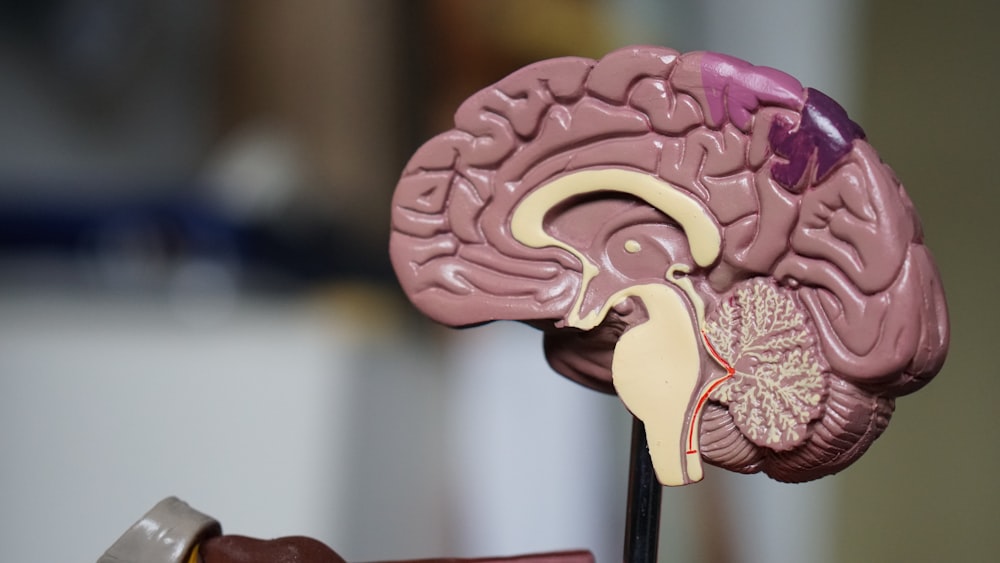Medical expertise matters less than the psychology of healing relationships
Patients choose doctors like they choose priests—based on faith, comfort, and feeling understood. We decode the behavioral patterns that build thriving practices versus struggling ones across European healthcare markets.
Specialized for healthcare professionals
Pattern Recognition
Identify behavioral patterns specific to healthcare professionals
Cultural Intelligence
European market psychology for healthcare professionals
Actionable Insights
Specific strategies based on behavioral intelligence
The psychology beneath industry decisions
Emotional needs exceed medical needs
Patients seek validation, not just medication. They need to feel heard, understood, and cared for. Practices that address psychological needs alongside physical symptoms build loyalty that technical excellence alone never achieves.
Appointment psychology and time perception
Fifteen minutes feeling heard beats thirty minutes feeling processed. Time perception in healthcare is psychological—rushed feelings correlate with poor outcomes regardless of actual duration. Successful practices manage psychological time.
Trust erosion from defensive medicine
When doctors practice defensive medicine, patients sense the legal fear over care focus. This psychological detection erodes trust more than actual medical errors. Confident vulnerability builds stronger relationships than defensive perfection.
Behavioral patterns we decode
Referral psychology in medical networks
Patient referrals follow emotional satisfaction, not clinical outcomes. A patient whose anxiety was addressed refers more than one whose condition was cured coldly. We map these emotional referral patterns.
Specialization perception and generalist trust
Specialists command respect but generalists earn trust. The psychological tension between expertise depth and relationship breadth determines practice success. Different markets show different balance points.
Clinic atmosphere and healing psychology
Medical outcomes improve in psychologically supportive environments. Wall color, waiting room layout, and staff demeanor affect patient psychology, which affects actual healing. Physical space enables psychological space.
Digital health adoption and resistance patterns
Telemedicine acceptance varies by age, condition type, and psychological comfort with technology. Chronic condition patients embrace remote monitoring while acute care seekers prefer physical presence. Understanding these patterns optimizes hybrid service delivery.
What successful businesses understand
Communication style predicts practice growth
How doctors explain conditions matters more than the explanation accuracy. Metaphors that resonate, pace that comforts, and language that empowers determine patient retention and referral generation.
Cultural health beliefs affect treatment acceptance
Mediterranean patients expect relationship and time. Nordic patients value efficiency and evidence. Eastern Europeans respect authority but verify through networks. Same medicine, different psychological packaging required.
Family dynamics determine individual healthcare
Patients don't make health decisions alone—family psychology influences everything from treatment selection to practice choice. Successful practices recognize and navigate family dynamics, not just patient needs.
What successful businesses understand
Patient psychology drives medical outcomes
Feeling heard and understood actually improves treatment effectiveness. Practices that invest in psychological comfort see better clinical results, not just higher satisfaction scores. Emotional healing enables physical healing.
Convenience psychology beats clinical excellence
Patients choose accessible average care over excellent inconvenient care. Psychological barriers like parking difficulty, appointment scheduling friction, or communication complexity lose more patients than medical limitations.
Prevention psychology requires different approaches
Preventive care sells future benefits to present psychology. Most patients operate in immediate gratification mode. Successful prevention practices frame future risks as present concerns through psychological techniques.
Hidden patterns in markets

Dental anxiety and avoidance psychology
Dental fear isn't about pain—it's about control loss, vulnerability, and judgment fear. Practices that address psychological barriers before physical treatment capture the massive avoidant patient market.
Learn more

Pediatric selection through parental psychology
Parents choose pediatricians based on their own psychological needs—validation of parenting choices, anxiety management, and competence confirmation. Child outcomes matter less than parental psychological comfort.
Learn more

Mental health stigma and seeking patterns
Psychological help-seeking follows complex cultural patterns. Therapy acceptance varies dramatically across European markets. Physical symptoms often mask psychological needs, creating opportunity for integrated approaches.
Learn more
European healthcare psychology variations
NHS culture affects UK private practice
British patients show unique psychology—guilt about private healthcare, expectation management from NHS experience, and class dynamics in medical relationships. Private success requires psychological navigation.
German precision expectations
Technical excellence expected, thorough documentation required, and systematic approach valued. But warmth deficit creates opportunity—practices combining German precision with human warmth capture premium position.
Mediterranean family medical dynamics
Healthcare decisions involve extended family. Doctors become family advisors, not just medical providers. Relationship investment requirements higher but retention rewards greater.
Nordic equality in medical relationships
Hierarchical doctor-patient relationships fail. Collaborative approach expected. Psychological equality important—expertise respected but superiority rejected. Different communication requirements.
Intelligence that drives growth
Patient journey from symptom to loyalty
Track psychological states through health concern recognition, provider research, appointment experience, and relationship development. Each phase requires different psychological support.
Online reputation and patient psychology
Review language reveals patient psychology more than satisfaction. Analyzing psychological patterns in feedback identifies service gaps, communication improvements, and opportunity areas.
Digital interaction and relationship maintenance
Telehealth changed proximity psychology but relationship needs persist. Digital communication requires different trust-building mechanisms. Hybrid models serve different psychological needs.
Transform your healthcare practice
Our analysis delivers:
- Patient psychological profiles and healthcare seeking triggers
- Communication strategies that build trust in your market
- Referral network activation through emotional satisfaction
- Cultural adaptation requirements for diverse patient bases
- Retention strategies based on relationship psychology
Frequently asked questions
How do you analyze patient behavior while respecting privacy?
We analyze public behavior—reviews, forum discussions, social media mentions, and aggregate patterns. No private medical information required. Psychological patterns appear in public discourse.
Can you identify why patients switch doctors?
Switching rarely involves medical competence—it's about feeling unheard, rushed, or judged. We identify specific psychological triggers that precede provider changes, often months before actual switch.
Do younger patients have different psychology?
Age correlates with technology comfort and information seeking, but core psychological needs—understanding, validation, and care—remain consistent. Delivery preferences change; underlying needs don't.
How important are online reviews for medical practices?
Reviews serve as psychological validation for choice anxiety. Patients read reviews to confirm decisions, not make them. Response quality matters more than review quantity—it demonstrates care continuity.
What about specialist versus general practice patterns?
Specialists benefit from expertise positioning but suffer relationship disadvantages. Generalists build trust but fight credibility concerns. Success requires balancing psychological positioning with actual capabilities.
Can you analyze alternative medicine appeal?
Alternative medicine addresses psychological needs traditional medicine ignores—time, attention, and validation. Patient attraction correlates with feeling unheard in traditional settings, not medical philosophy.
How do waiting times affect patient psychology?
Waiting isn't about time—it's about respect perception. Acknowledged waiting with explanation feels shorter than ignored waiting. Psychological time management matters more than actual time reduction.
Do medical credentials influence patient choice?
Credentials provide permission to consider but don't determine selection. Patients can't evaluate medical education quality—they use psychological proxies like communication, warmth, and confidence.
Can you identify price sensitivity in healthcare?
Healthcare price sensitivity follows psychological value perception—prevention shows high sensitivity, crisis eliminates price consideration. Elective procedures fall between based on identity versus medical framing.
How does insurance affect patient behavior?
Insurance creates psychological distance from cost, increasing service consumption but decreasing value perception. Private-pay patients show different engagement patterns—higher expectations but also higher compliance.